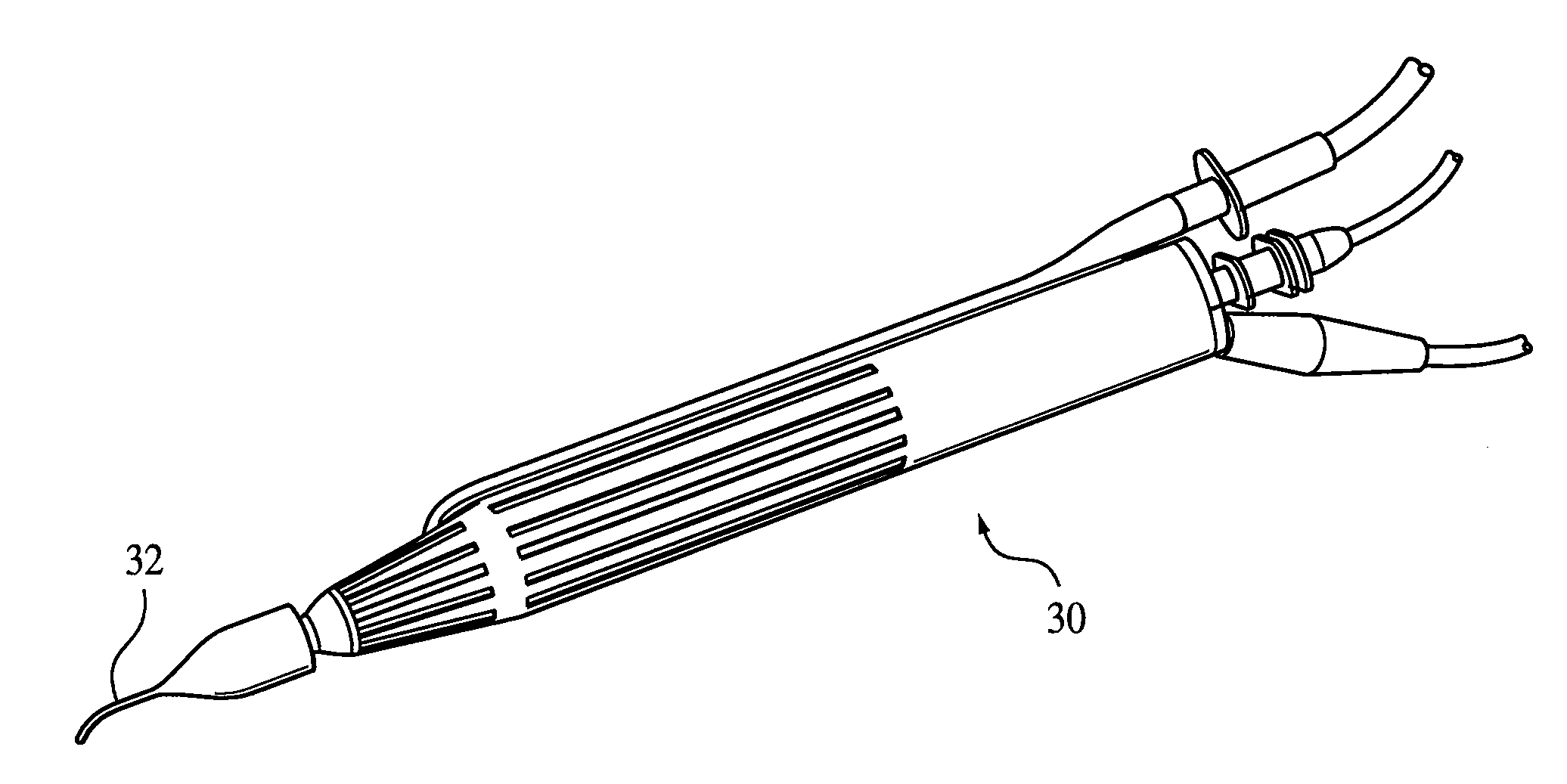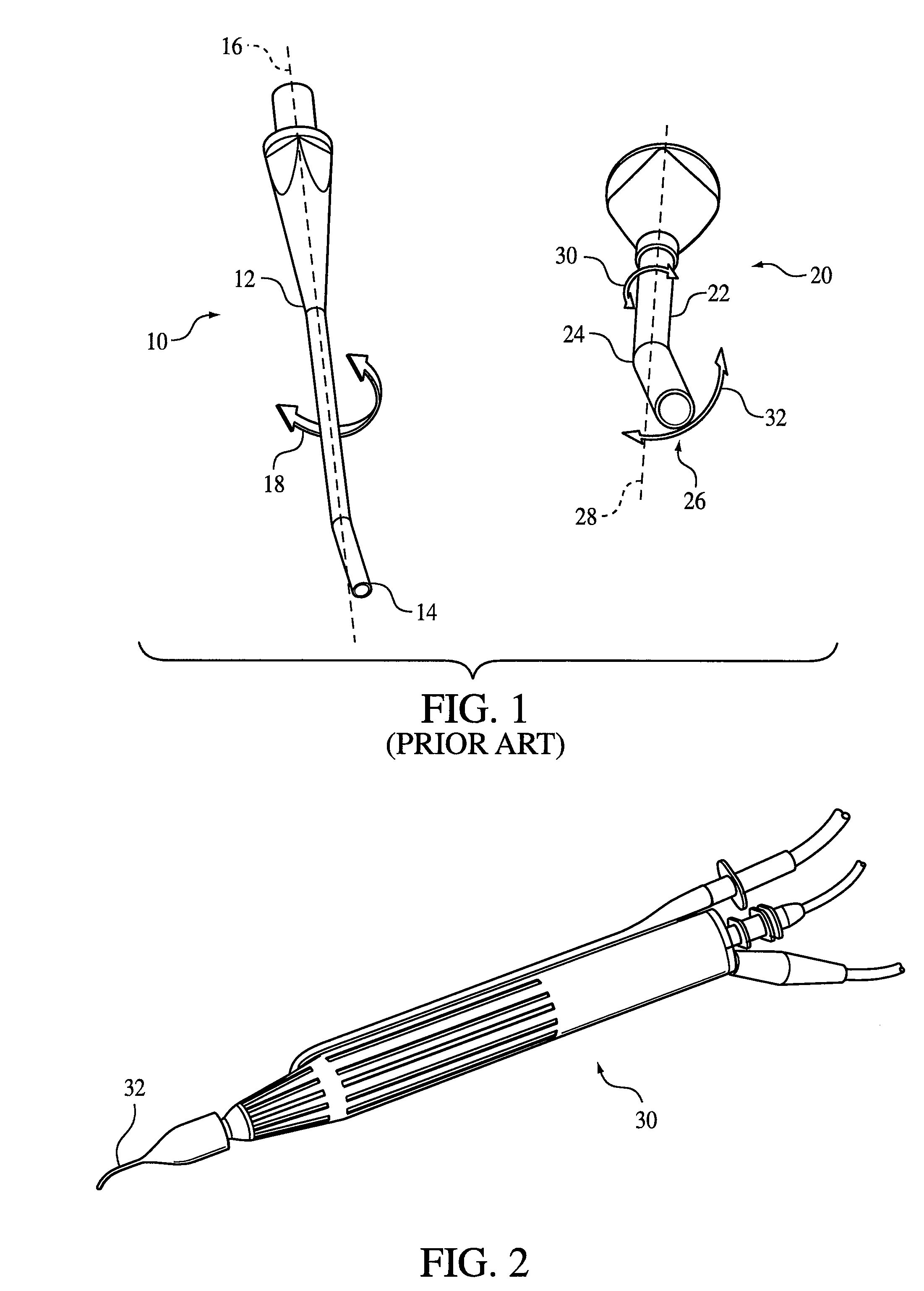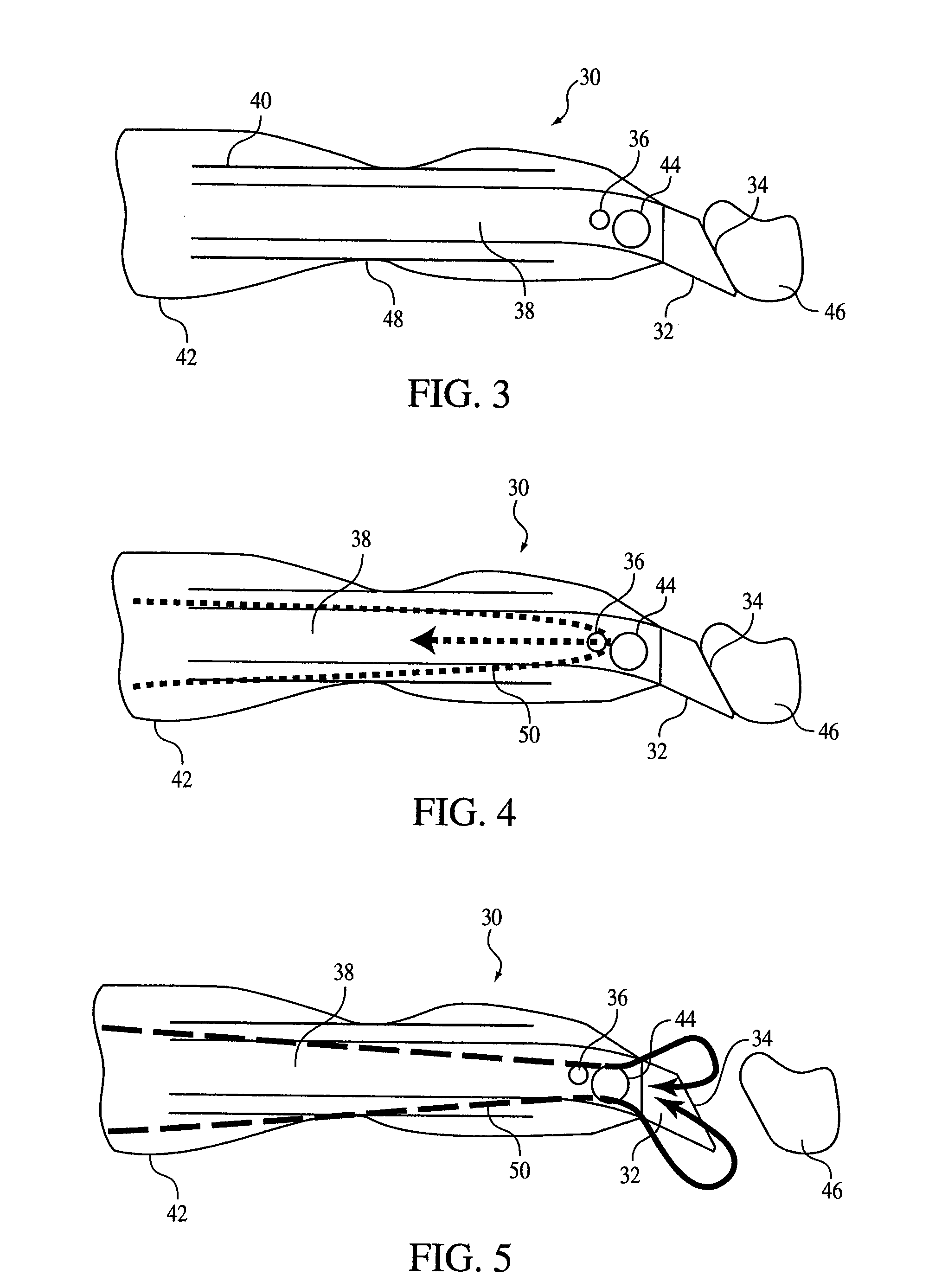Torsional Ultrasound at Resonant Frequencies That Eliminate Chatter
a torsional ultrasound and resonant frequency technology, applied in the field of ophthalmic surgery, can solve the problems of heat generation between the irrigating sleeve and the vibrating tip, deteriorating vision, tight wounds, etc., and achieves the effect of less movement of the lens, less chatter, and less strok
- Summary
- Abstract
- Description
- Claims
- Application Information
AI Technical Summary
Benefits of technology
Problems solved by technology
Method used
Image
Examples
Embodiment Construction
[0022]It would be desirable to use torsional ultrasound at elevated resonant frequencies to reduce repulsion, while providing thermal mitigation at an incision. Such thermal mitigation may be realized with a heat generation reduction structure such as a bypass port or bypass hole in the phacoemulsification needle tip, low friction polyimide tubing around the tip, and / or flow and power dependent power modulation.
[0023]Current implementation of torsional ultrasound has torsional resonant frequency equal to about 32 kHz. This is somewhat lower than the typical 38 to 44 kHz used for longitudinal ultrasound. There is a slight amount of chatter associated occasionally with the torsional ultrasound especially when used on very dense lenses.
[0024]An increase in the frequency of torsional ultrasound results in a lower stroke for the same amount of energy transmitted to the lens. While this lower stroke is likely to invoke less movement of the lens, which will be perceived as less chatter and...
PUM
 Login to View More
Login to View More Abstract
Description
Claims
Application Information
 Login to View More
Login to View More - R&D
- Intellectual Property
- Life Sciences
- Materials
- Tech Scout
- Unparalleled Data Quality
- Higher Quality Content
- 60% Fewer Hallucinations
Browse by: Latest US Patents, China's latest patents, Technical Efficacy Thesaurus, Application Domain, Technology Topic, Popular Technical Reports.
© 2025 PatSnap. All rights reserved.Legal|Privacy policy|Modern Slavery Act Transparency Statement|Sitemap|About US| Contact US: help@patsnap.com



